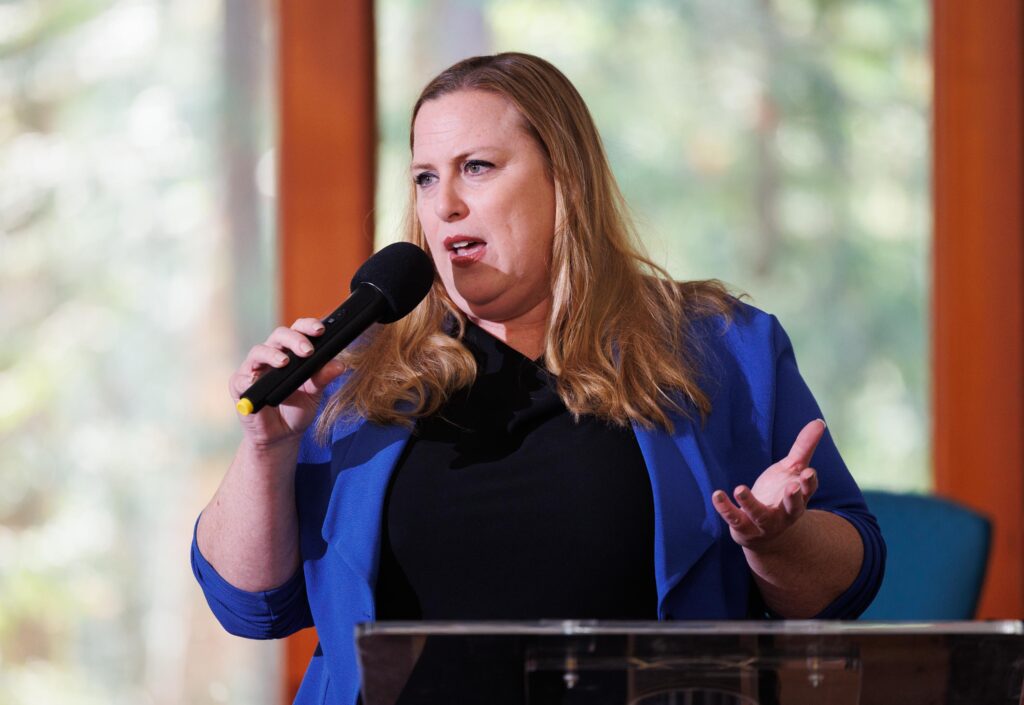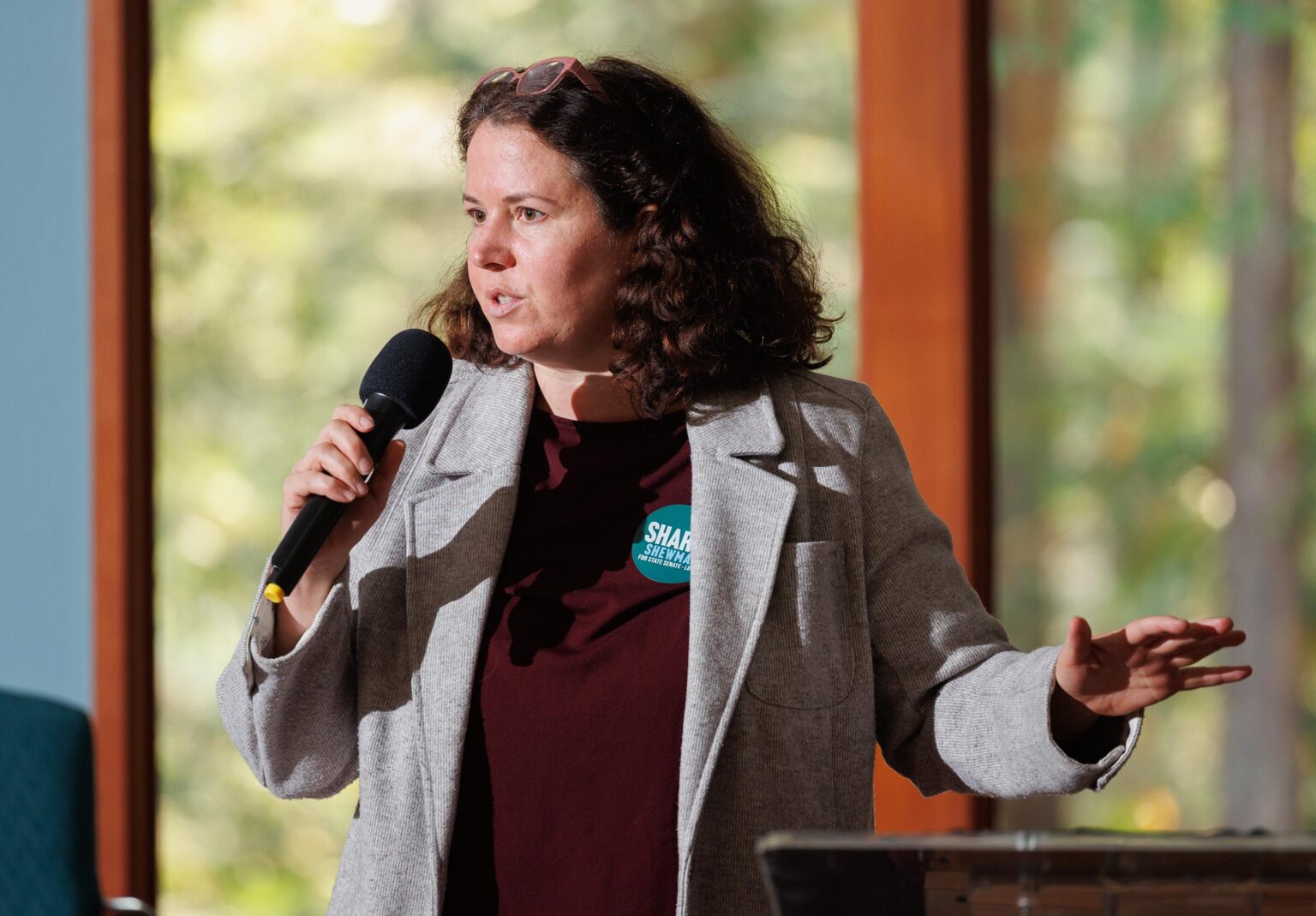Can state government help solve the affordable housing crisis in Whatcom County, or should government get out of the way?
“Housing is a problem,” Gina Stark stated flatly, as the Habitat for Humanity in Whatcom County president introduced a lunchtime candidate forum on Oct. 15. “It doesn’t matter what political party you affiliate with.”
Three Republicans and two Democrats on the Nov. 8 ballot for the state’s 42nd Legislative District offered ideas on how to expand housing opportunities during 10-minute stump speeches at the Habitat forum.

Sen. Simon Sefzik, a Republican who seeks to retain his Senate seat in the 42nd District — north Bellingham and north and east Whatcom County — cited a report from Habitat for Humanity Seattle-King & Kittitas Counties indicating that the state invests in rentals, shelter and housing services over homeownership in a 20-to-1 ratio.
“That is a massive racial and economic equity issue as well, because it ensures developers build only rentals in communities of color, denying families opportunities to become homeowners and build equity,” Sefzik said, quoting from the Habitat report.
But diverting funds toward homeownership won’t help, Sefzik added, unless the state finds a way to ease permitting costs and other regulatory burdens on developers.
“I think we need to build up. I think we need to build out,” Sefzik said — his shorthand way of promoting both increased housing density in cities like Bellingham and more home construction in rural areas.
Sefzik’s Democratic opponent, Rep. Sharon Shewmake, emphasized building up over building out. Urban-centered growth preserves farmland and is better for the environment, Shewmake said.
“That’s where the jobs are,” she added. “That’s where people want to live.”
As a representative in the House, Shewmake supported a bill that would have enabled the owner of almost every single-family home in Washington to build an additional attached or detached residence on their property.
Dan Johnson, a Republican running for the House seat Shewmake is vacating, said the Legislature should examine multiple ways to cut costs for homeowners, including reductions in permitting fees and property taxes. He also said the state should fund infrastructure buildout in rural areas — everything from water and sewer lines to new garbage transfer stations.
Johnson’s opponent, Democrat Joe Timmons, did not attend the Habitat forum.
Republican Tawsha Dykstra Thompson, challenging Rep. Alicia Rule for the other House seat in the 42nd District, said the Growth Management Act, which limits development in rural areas, requires a “major overhaul.” Regulations can be relaxed, Thompson said, given the current level of environmental awareness in the community.
“We raised a generation that are very conscientious of the environment, and I think it would give people a little more freedom to do it right,” Thompson said. “We don’t need to be charging so much for that.”

In her speech, Rule spoke of her record supporting housing efforts in the Legislature. She worked with fellow Democrats to include Habitat for Humanity housing projects under the Housing Trust Fund. She also helped pass a bill that expanded the definition of homelessness for children.
“Now, if we have kids who are sleeping in places like a camping trailer or don’t have a stable residence of their own, they qualify as homeless,” Rule said. “That’s a really big deal because it means that … they can be somewhere safe while we help with other resources to help their families.”




